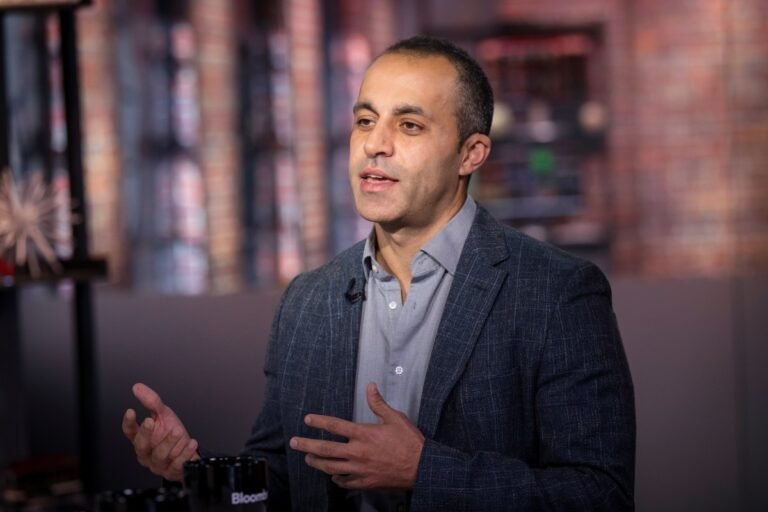
Observe — not to be confused with Observe.AI — builds observability tools for machine-generated data that aims to break down data silos, useful for developers to understand how apps are working, being used, and potentially failing.
The main use case for Observe today is to analyze data to troubleshoot when an application is not working as it should be.
It’s very permissive.” The company today works with third-parties to enhance that work but he doesn’t rule out native applications in these and other areas down the line.
“We see it as a lever to unlock new customers,” he said of the investment thesis of Snowflake Ventures.
[In data,] there is nothing that competes with Observe right now,” Williams added.

Century Health is a new startup also getting in on the action.
“One of the biggest issues around innovation for new treatments is efficient access to good patient data.
That data sat around for decades because it takes manual effort to normalize and extract insight from it.”That’s when he teamed up with friend Sanjay Hariharan, a data scientist and applied AI engineer, to form Century Health.
For us, that also means as affordably as possible with access to good real-world data.”Now with $2 million pre-seed funding, Century Health will run three to five pilots over the next several months.
In addition to the validated technology, another milestone will be to secure early revenue from the pilots, which Century Health can leverage to go after another round of venture capital.

You could spend it training a generative AI model.
See Databricks’ DBRX, a new generative AI model announced today akin to OpenAI’s GPT series and Google’s Gemini.
Customers can privately host DBRX using Databricks’ Model Serving offering, Rao suggested, or they can work with Databricks to deploy DBRX on the hardware of their choosing.
It’s an easy way for customers to get started with the Databricks Mosaic AI generative AI tools.
And plenty of generative AI models come closer to the commonly understood definition of open source than DBRX.

Following Elon Musk’s xAI’s move to open source its Grok large language model earlier in March, the X owner on Tuesday said that the company formerly known as Twitter will soon offer the Grok chatbot to more paying subscribers.
In a post on X, Musk announced Grok will become available to Premium subscribers this week, not just those on the higher-end tier, Premium+, as before.
Previously, Grok was only available to Premium+ subscribers, at $16 per month or a hefty $168 per year.
Most notably, Grok has the ability to access real-time X data — something rivals can’t offer.
Of course, the value of that data under Musk’s reign may be diminishing if X is losing users.

Just about everyone is trying to get a piece of the generative AI action these days.
While lacking the brand name recognition of some of these other players, it boasts the largest open source model API with over 12,000 users, per the company.
That kind of open source traction tends to attract investor attention, and the company has raised $25 million so far.
“It can be either off the shelf, open source models or the models we tune or the models our customer can tune by themselves.
Being an API, developers can plug it into their application, bring their model of choice trained on their data, and add generative AI capabilities like asking questions very quickly.

Controversial crypto biometrics venture Worldcoin has been almost entirely booted out of Europe after being hit with another temporary ban — this time in Portugal.
The order from the country’s data protection authority comes hard on the heels of the same type of three-month stop-processing order from Spain’s DPA earlier this month.
Portugal’s data protection authority said it issued the three-month ban on Worldcoin’s local ops Tuesday after receiving complaints Worldcoin had scanned children’s eyeballs.
By contrast, EU data protection law gives people in the region a suite of rights over their personal data, including the ability to have data about them corrected, amended or deleted.
As Tools for Humanity’s lead DPA, under the one-stop-shop (OSS) mechanism in bloc’s General Data Protection Regulation (GDPR), it is responsible for investigating privacy and data protection complaints about the company.

0G Labs, a web3 infrastructure firm,” has raised $35 million in a pre-seed round, the team exclusively told TechCrunch.
“In order to build the basic technology, we wanted to raise $5 million, originally,” said 0G co-founder Michael Heinrich.
0G, sometimes called ZeroGravity, is creating a modular AI blockchain that aims to alleviate the pain points of on-chain AI applications in the web3 ecosystem, like speed and cost efficiency.
On-chain AI and gaming requires a fast data pipeline.
It also plans to enable new use cases and things that were not possible before like on-chain AI, on-chain gaming and high-frequency decentralized finance (DeFi).

A new report highlights the demand for startups building open source tools and technologies for the snowballing AI revolution, with the adjacent data infrastructure vertical also heating up.
A broader look at the “top 50 trending” open source startups last year reveals that more than half (26) are related to AI and data infrastructure.
This ethos often translates into commercial open source startups which might not have a traditional center of gravity anchored by a brick-and-mortar HQ.
For comparative purposes, there are other indexes and lists out there that give a steer on the “whats hot” in the open source landscape.
So the ROSS Index has emerged as a useful complementary tool for figuring out which open source “startups” specifically are worth keeping tabs on.

AI is a data problem.
Now Cyera is raising up to $300M on a $1.5B valuation to secure itA cybersecurity startup called Cyera is betting that the next big challenge in enterprise data protection will be AI, and it’s raising a big round of funding as demand picks up for it.
Previous to this, Cyera — pronounced “Sierra” and headquartered in San Mateo and with roots in Israel — had raised a total of $160 million with its current $500 million valuation dating from last year.
Cyera, Coatue and Sequoia declined comment.
A source said that AI right now is a “huge driver” for business at Cyera.

Last year, Salesforce, the company best known for its cloud sales support software (and Slack), spearheaded a project called ProGen to design proteins using generative AI.
“Many drugs — enzymes and antibodies, for example — consist of proteins,” Madani said.
Fed into a generative AI model, data about proteins can be used to predict entirely new proteins with novel functions.
Other companies and research groups have demonstrated viable ways in which generative AI can be used to predict proteins.
And DeepMind, Google’s AI research lab, has a system called AlphaFold that predicts complete protein structures, achieving speed and accuracy far surpassing older, less complex algorithmic methods.













